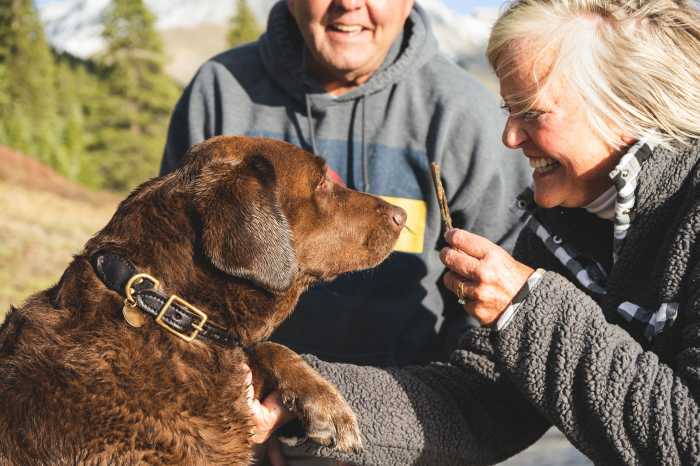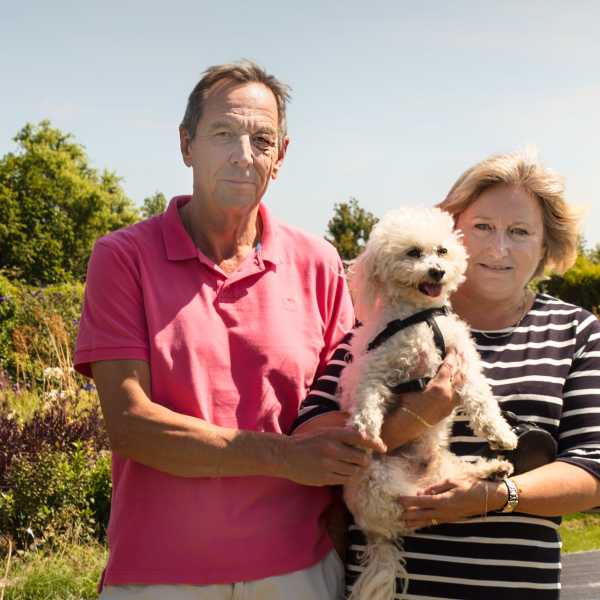
Click Liverpool - 8 Tips for Caring for Your Senior Dog
Posted on 28 May, 2021

Photo by Chewy on Unsplash
Written by Lilly Edwards for Click Liverpool
When we first get our loveable little puppy, we don’t usually think about how they will one day reach their senior years and most likely need help and a lot more caring for so that they can live a comfortable life. The thought of this happening to our puppy can fill us with sadness as we become attached to them, and the thought of life without them can be extremely disheartening. However, that does not mean you cannot enjoy the time you have with your beloved dog. And even once they have reached their senior years, there is still a lot you can do to ensure that the both of you are living healthy and fun-filled lives.
If you have a senior dog and you are wondering how best to care for them, there are many tips for you to read. It is vital that you provide your senior dog with the care they need, especially if they have any health concerns such as digestive issues or mobility problems. While this may seem daunting, it does not have to be, as there are many resources, treatments, and products out there to help you. What’s more, if you are unsure about anything, you can always talk to your vet who will provide you with the answers and help that you and your senior dog need.
Read on for tips on how your can ensure your senior dog stays healthy, fit, and happy for as long as possible.
1. Reassess Their Diet
A balanced diet that is full of nutrients is essential for dogs of all ages, but as your pooch ages, you may have to reassess their diet and make some small changes to ensure they are eating enough of the right things. Typically, your senior dog will want to have a diet that has fewer calories and less fat as they will be less mobile and unable to burn it off. This is because your senior dog may have less energy and is therefore less inclined to play.
If your dog seems to be suffering from a certain condition, then you may need to consult with your vet and ask them for a specific type of food. They may also suggest supplements so that your dog can live more comfortably. For instance, YuMOVE is a dog joint supplement that helps support your dog’s joint health so that they can make the most of their life. When combined with a proper diet that caters to your dog’s needs, such supplements can allow them to live a happier and healthier life.
2. Provide Them with Regular Exercise
Even though your dog is ageing, it does not mean they can no longer exercise. Your dog will let you know if they are unable to perform certain tasks, so you should continue taking your dog on walks and hikes as well as throw them a ball for them to fetch. All you should keep in mind is that they may perform the tasks slower and for lesser periods of time.
Don’t be surprised if you start to see your dog slow down. This is normal and not a cause for concern. Your puppy may have been able to run for an hour straight before, but this will no longer be the case as they start to age, and their energy levels deplete.
3. Change Their Exercise Regime
As mentioned in the previous point, your dog will start to slow down. When this happens, you will want to slightly adapt your exercise regime for them. Taking your dog for walks is still a requirement so that they burn off their energy, build their stamina, and use their joints, but you may have to take them on shorter walks and walks that are easier. This means not taking your dog on an hour-long hike that is predominantly uphill!
4. Speak to Your Vets
Any concerns you may have should be taken to your vet. They will be able to provide you with the best answers to any questions you may have and allow you to learn the best ways to care for your dog. Remember that it is your vet’s job to listen to you and your dog and provide you with meal plans, dietary suggestions, and check-up on your dog’s overall health and well-being.
5. Have Regular Check-ups
As your dog ages, their immune system will weaken, and they may become more prone to illnesses and ailments. While some of these ailments may not have impacted your dog before, they may find it more difficult to overcome. In fact, your dog may need the additional help of medicine.
It is recommended that you take your dog to the vets once every six months. Of course, if something does not feel right, then you should schedule an appointment with your vet as it is always better to be safe than sorry. Your vet will most likely use these check-ups to check your dog’s weight, movement and overall temperament. They will also be able to spot whether anything is wrong and provide you with the best possible treatment that can help get your dog back on their feet.
6. Continue to Vaccinate Them
Treating your dog for fleas, ticks and worms is essential. Even as they become a senior dog, you will need to continue giving your pooch the right protection so that they are properly shielded. However, when it comes to vaccinations, your senior dog may not need them as regularly. Be sure to consult your vet, though, as they will be able to advise you on the best course of action.
7. Groom them Regularly (and More Often)
While you should groom your dog regularly anyway, regardless of age, your dog is less likely to be able to groom themselves as they age. The older they get, the less mobile they become. Therefore, they may not be able to reach certain areas which could lead to a build up of dirt or matted fur that needs to be washed or brushed by you instead.
You will also find that your dog’s coat will become duller looking and less shiny. While this can be quite upsetting to see, it is quite normal. This means that you will need to brush and wash your dog’s coat more frequently to ensure it does not become matted or tangled.
Remember that your dog’s skin may become more brittle and irritable as they age. Therefore, you may need to use shampoo that is developed for dogs with sensitive skin or dogs that have developed flaky or dry skin. You may also need to change the way you bathe, wash, and brush them.
8. Spend as Much Time with Them
Witnessing your dog age can be a difficult thing to do, but that does not mean you should ignore it or spend less time with them. If anything, this time you have with your senior dog should be cherished so that you can make long-lasting memories that will help you remember your dog happy and healthy.
Although your dog’s hearing and eyesight may have worsened, and they may not be able to see or hear you well anymore, they will still require your companionship. Sitting with them and gently stroking them as they lay in their bed can help increase their mood and help them stay happier both emotionally and mentally. If your pooch is still mobile, continue to take them for walks and play with them.
Your dog is most likely your best friend. Therefore, you will wish to do everything in your power to ensure that they are happy and healthy. The above guide provides you with tips that can help you ensure the wellbeing of your dog so that they can live a long and comfortable life with you.
To read the original article written by Lilly Edwards for Click Liverpool, please visit: www.clickliverpool.com/features/40837-8-tips-for-caring-for-your-senior-dog/
Tags:



